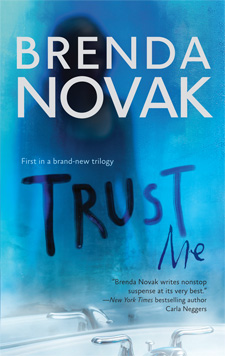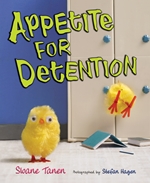
Daughter of the Forest, by Juliet Marillier
As the only daughter and youngest child of Lord Colum of Sevenwaters, Sorcha grows up protected and pampered by her six older brothers. When a sorceress's evil magic ensorcels Colum's sons, transforming them into swans, only Sorcha's efforts can break the curse. A re-telling of the old fairy tale, set in Ireland as the older beliefs are beginning to be overtaken by christianity.
I have to be honest here, this book is horrifying. This book has so many terrible things happen to the people that we're supposed to like, it was a never-ending strain on my nerves, even though I know the old fairy tale well, and I should have been able to relax about the fate of our protagonist, Sorcha. Initally, I was unable to concentrate on the story because of my preoccupation with our heroine's name. It was a little too close to Sorsha, from the movie Willow, for comfort. All I could think of was that scene when Mad Martigan gets hit with that love potion, and they get into an argument, and she's yelling, "'I dwell in darkness without you' and it went away?" I really enjoy that movie, not least because of an early review of it, regarding Jean Marsh as an effective tool to force small children to eat their vegetables. (cf. If You Ask Me by "Libby Gelman-Waxner"). But soon enough, the ominous suggestions in the beginning are fulfilled, and Sorcha is called upon to save her brother through hard work, pain, and silence. I was already sucked into story by the time something horrible in particular (now I sound like I read too much Cold Comfort Farm) about a third of the way in, which was completely unexpected (by me) and therefore doubly shocking and, uh impactive, for lack of a better word. It was at that point that I realized that despite my foreknowledge of the ending, there could certainly be a lot of despair and horror before we reach that point, and that even once that point is reached, there is no guarantee that you'll get warm fuzzy feelings after turning the last page. And that realization makes the book more powerful, because you begin to experience events with the characters, and therefore know just how hard the task set before Sorcha is. The ending, which does end, as much as possible, happily (there are further revelations which serve to further depress the spirit, but they don't affect Sorcha directly, and at that point, I was willing to take victories where they lay) feels all the more joyful because of the sadness that preceded it. This is an excellently written book, a graceful and unique re-telling of the Seven Swans, one which may not be out of place among the so-called original Grimm's Fairy Tales, a la the Little Mermaid and her sea foam demise. It is harrowing, but the ability to make one scared for a character, even when you supposedly know the end to her story, is the mark of a good writer.
 'Son of the Shadows (Book 2)
'Son of the Shadows (Book 2)Liadan of Sevenwaters is the child of Iubdan and Sorcha (whose story was told in Daughter of the Forest) and she is granted the power to hear and see what others cannot. She is a healer of mind, body and spirit. It is Liadan's gift of healing that brings about a meeting with a mercenary considered to be the enemy of her family. Liadan names this man without a name or history "Bran" and soon realizes that the information she has been told about him (and the world in general) is not what it appears to be.
Okay, so, I was very excited about this one, because I read the first in the series and fell in love with the characters and the story. This one was, well, a bit of a let down. I think that's partly by virtue of the strength of the first entry in the series, and also partly because after the first one, I became somewhat inured to the almost ridiculously awful experiences that Marillier likes to puts her characters through (in this series at least - those in Wildwood Dancing got off easier). This was a good middle entry, although I personally didn't find the heroine, Liadan, as sympathetic as Sorcha. Liadan is a very different person than Sorcha, one who is not merely buffeted by the winds of fate and destiny (as is made very clear by her refusal to listen to the warnings of the Old Folk in the forest). SotS certainly sets things up for the third book, in more ways than one, set as it is about eighteen years after Daughter of the Forest and eighteen years before Child of the Prophecy. The tone of this volume is very different from Daughter of the Forest, possibly because it's not based on legend, possibly because it is more focused on very earthly problems, rather than the sorcerous and magical problems of the other books. It is well-written, but doesn't create the same sense of urgency and connection that DotF does. With the wisdom granted in hindsight, I would say that this is my least favorite installation in the Sevenwaters Trilogy et al. (although still not bad in and of itself). There are some very good sequences, such as when Liadan is kidnapped and asked to save a mercenary's life, and also an exciting escape involving fairly high stakes. These are only sequences though, and not the same as the continued strain of DotF.

Child of the Prophecy (Book 3)
The saga of the guardians of the forest at Sevenwaters takes up the story of Fainne, daughter of the former Druid Ciaran and the lost Niamh. Raised in the ways of magic, Fainne plans to become a solitary sorcerer like her father, but fate intervenes in the form of her grandmother, Oonagh, a sorceress with a penchant for cruelty and a desire to put an end to everything the Sevenwaters folks stand for. A prophecy tells of a way to preserve the old magic, and Lady Oonagh is willing to trick her granddaughter and torture her own son to break it. Though Fainne is forced to bow to her grandmother's will, the love of her family and her own strong ethics help her remember her true nature, as she learns about herself, her powers of sorcery and the part she plays in a prophecy that has tested three generations of women.
This is a strong conclusion to the trilogy, neither my least nor best liked. The plot concerns the journey of Fainne, who travels from Kerry to Ulster on the orders of her father and grandmother (although each has different reasons for so ordering). The Lady Oonagh, back from the first book, pops up, although she doesn't have the same air of menace that she did in DotF. Although I was tempted to be frustrated with Fainne by her lack of self-confidence and willingness to obey her grandmother's dictates, there are good reasons for her behavior and mindset, as Marillier adequately explains her circumstances so that her actions are completely reasonable for someone in her position. The resolution of the trilogy fell a little flat to me, because after all this build up, after all the tension between Fainne and Oonagh, after the big battle at the end for the island, it seemed a little. . . easy . . . for them to defeat the threatening evil. I was, perhaps through no fault of the author's, sucked into believing that Fainne's decision would directly impact the outcome of the battle, influence and direct the flow of it, and that didn't happen - the battle was fought and decided without her interference at all, and her purpose in the larger scheme of things is revealed only after the sorceress is well defeated, too. I did really like the evolution of the love story here, I found both Fainne and her sweetheart to be delightful in their mutual wishes to protect the other (I am kind of sucker for that). A bittersweet ending to the saga, but an appropriate one, and satisfying in a way that DotF couldn't be, by tying up sundry loose ends.
 Heir to Sevenwaters (Bonus Extra Book)
Heir to Sevenwaters (Bonus Extra Book)Clodagh, the third daughter of the lord of Sevenwaters, is the practical one who keeps things running while her aging mother awaits the birth of a male heir. At her sister's wedding, she meets rude, closed-off Cathal, one of her cousin Johnny's personal guards. Shortly after, when the Fair Folk replace the newborn heir with a changeling creature, Clodagh and Cathal put their lives and sanity on the line to rescue the child.
This is my second favorite of the bunch. Here, Marillier returns to a more patterned story, this one modeled after various changeling and fairy folk-related tales. The plot is fairly straightforward (not something which can be said for others in the series), wherein Clodagh, a normal, unmagical girl, is thrust into the position of having to traverse the Otherworld to bargain with Mac Dara, the new (and quite villanous) Lord of the Fey. He is so bad, in fact, that one almost wishes he had a moustache to twirl as he discusses his dark deeds. The tone of Heir is much lighter than that of the previous three, which was a relief since I read them all in a row, and after several days of this particular Series of Unfortunate Events I needed some good clean romance and fantasy without all the doom and gloom attached. There is, naturally, still some doom and gloom (otherwise it just wouldn't be a Sevenwaters book), but it is restricted to warnings for the future rather than present misfortunes. Marillier really evokes the world of her characters, and never is it more apparent than here, where the changing landscape and the attendant pitfalls play a big part in the plot.
ETA: I was re-reading the books and re-read this entry to see what I used to think about them, and I realized that I didn't remember the fourth book at all, except for that twig-baby. How creepy was that thing?! And it like, moved and cried like a baby, too, didn't it? Can you imagine a heap of twigs crying like a baby and waving little stubby branches around? Because I can, and it is horrifying.
Just a heads-up.
Throughout each book, there are common elements and themes - for our heroines, they may take the message away that love suceeds in the end (although those poor souls who aren't the main characters may not trust so easily to this). There is, oddly enough, in each story the counterpoint of a young (usually) man who also genuinely loves the heroine, and in some cases puts himself through extreme privation in order to be with her. In any other book, this would make him the hero, but here they have naught but disappointment and/or death. The presence of these characters serves to remind us that love is a tricky thing, and cannot be forced but only freely given. It's a nice touch, and meshes well with Marillier's desire to bring down even the most well-earned happy endings. Another theme is that of the frailty of life, and way of life. In later books especially, is the idea that sooner or later (sooner) the old ways and beings will pass from this earth. It may be appropriate to the time period (and Sevenwaters is far from the only book to touch on this topic, ever since Peter Pan told us not believing in fairies killed them; Veil of Gold echoes this feeling of widening separation between reality and story) but it lessens the importance of the characters' actions. All in all, a wonderful series.








